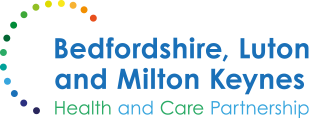Click here to view the lymphadenopathy paediatric pathway.
Lymphadenopathy
Advice for professionals
When should you worry?
If your child has any of the following:
- Is pale, mottled and feels abnormally cold to touch
- Is going blue around the lips or has pauses in their breathing (apnoeas) or has an irregular breathing pattern
- Severe difficulty in breathing - too breathless to talk or eat/drink
- Has a fit/seizure
- Becomes extremely agitated (crying inconsolably despite distraction), confused or very lethargic (difficult to wake)
- Develops a rash that does not disappear with pressure (see the 'Glass Test')
- Is under 3 months of age with a temperature of 38°C / 100.4°F or above (unless fever in the 48 hours following vaccinations and no other red or amber features)
You need urgent help.
Go to the nearest Hospital Emergency (A&E) Department or phone 999
If your child has any of the following:
- Is 3-6 months of age with a temperature of 39°C / 102.2°F or above (but fever is common in babies up to 2 days after they receive vaccinations)
- Continues to have a fever of 38.0°C or above for more than 5 days
- Develops pain and redness of the lymph node
- Lymph nodes increasing in size - bigger than a 10 pence coin
- Unexplained bruising
- Losing weight
You need to contact a doctor or nurse today.
Please ring your GP surgery or contact NHS 111 - dial 111 or for children aged 5 years and above visit 111.nhs.uk
If your child:
- Continues to have enlarged lymph nodes that are slowly improving but he/she is otherwise healthy
- Small lymph nodes may persist for years
Self care
Continue providing your child’s care at home. If you are still concerned about your child, contact NHS 111 – dial 111 or for children aged 5 years and above visit 111.nhs.uk
- Use painkillers such as ibuprofen and paracetamol to keep your child comfortable - please read and follow the instructions on the medicine container.
- It is normal for lymph nodes in your child's neck to be enlarged when they have an infection such as a sore throat. This is your child's normal response to fighting common infections. Antibiotics are not normally required.
- Children with severe eczema often have enlarged lymph nodes. This will improve with treatment of your child's eczema.
- Occasionally, enlarged lymph nodes can become infected. If the lymph node is painful, red and hot, your child will need to see a healthcare professional because they may need treatment with antibiotics.
- If your child has been prescribed antibiotics for an infection of their lymph nodes and still has a fever after 2 days, they will need to be seen again.
- Your child should start getting better within a couple of days but their lymph nodes may take 2-4 weeks to improve. Small lymph nodes may persist for years.
LEFT: Painless enlarged lymph nodes on both sides of the neck (bilateral) associated with a sore throat - likely to improve without treatment.
RIGHT: Painful, hot swelling on left side of neck caused by an infected lymph node - requires treatment with antibiotics



